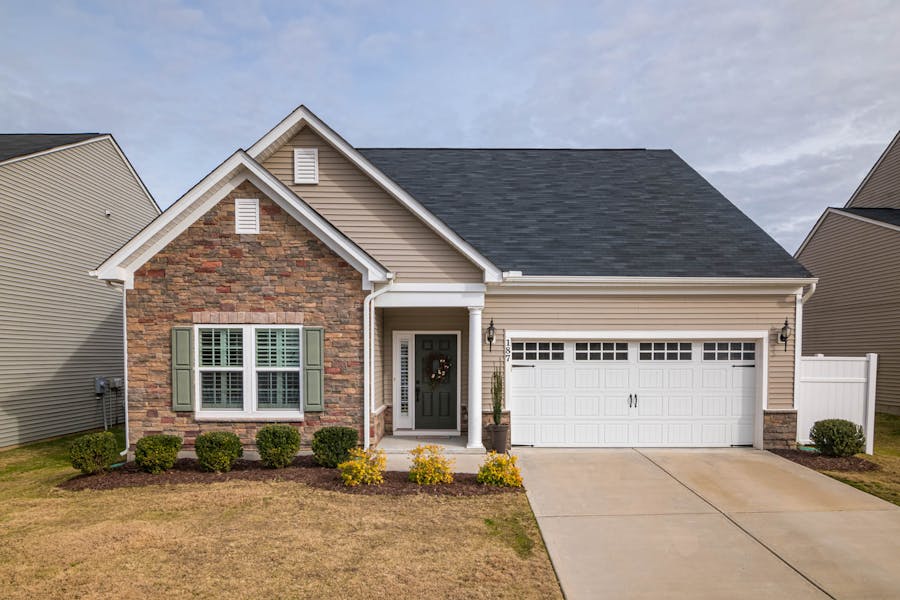Michael S. Simone, Esq.
Managing Attorney

You have heard the lectures from your estate planning attorney – having an up-to-date last will is crucial. Yet statistics show nearly 70% of Americans risk die without this critical document declaring their intentions.
We get it — thinking about your own mortality feels heavy. So, you end up putting off planning indefinitely until you’re confronted with a tragic loss or diagnosis. But failing to make legal provisions spells disaster for the loved ones left sorting out your affairs.
As estate planning attorneys assisting New Jersey families grappling with loss, we guide countless people exactly where you stand.
The reality is that if you die without a will in New Jersey, your property, including your house, will be distributed according to the state’s intestacy laws, which could mean it goes to relatives you had no intention of leaving it to.
While jointly owned assets do transfer cleanly to survivors, any solely owned property gets complicated fast. Here’s what you need to know.
When someone dies with no will, New Jersey follows “intestate succession” laws dictating who inherits their estate. Rather than personalized wishes, state statute transfers property to spouses, children, and other relatives in priority order.
Intestate law also initiates probate court proceedings. A Judge appoints an estate administrator to inventory assets, settle debts, and distribute inheritance per statutory heirs.
The good news – New Jersey’s inheritance laws only apply to assets that pass through probate. This includes only individually-owned things like:
Your jointly-held house automatically goes to a surviving spouse, bypassing probate. Life insurance payouts also skip probate, heading straight to chosen beneficiaries. The same for jointly held bank accounts, 401(k)s, trusts, etc. – anything with a surviving co-owner or named successor avoids court processes.
But possessions only titled in your individual name with no recorded successor can trigger state probate limits on who inherits those items. This often affects things like:
So, co-ownership and beneficiary planning protect assets by avoiding probate when you’re gone.
If there is no will, New Jersey law has a standard order of inheritance spelling out who gets what:
The generic inheritance rules quickly become complex for homeowners with blended families or non-traditional arrangements. Clear instructions in a Will are needed to ensure your house goes to the right people.
The form of legal ownership of your house and other real estate determines what occurs if you die without an estate plan.
For a married couple, if the property is jointly titled with “rights of survivorship,” then it fully transfers to the surviving widow or widower automatically. No probate needed.
However, owning your property solely in your name leads to different outcomes:
When unmarried people co-purchase a property as “tenants in common,” it can seem like a guarantee that the surviving owner will retain the whole thing.
However, tenants in common have no rights of survivorship. If one owner dies without a will, their ownership percentage does not automatically transfer to the surviving co-owner.
Instead, the deceased owner’s interest gets distributed to heirs like children per state probate rules. Now, the heirs and surviving co-owners must navigate messy buyouts, partitioning, or forced sales.
In summary, even with co-ownership, unintended relatives can end up with partial shares without careful estate planning protections backing up intent for unmarried joint asset owners. Titling choices alone fail to adequately keep property within intended hands at death.
While no one likes thinking about mortality before enjoying a full life, being unprepared creates additional hardship for loved ones. Scheduling a consultation helps to be more proactive in ensuring what happens to your assets.
Our team offers consultations to guide New Jersey homeowners in this sensitive planning process every step of the way. We gauge risk factors, property issues, family dynamics, and priorities to coach you in establishing an estate plan that prevents unintended outcomes.
Contact us today to start planning your legacy.
The core values of our team distinguish our firm from all others. We know there are many choices in legal representation and we appreciate you considering our firm for your legal needs. Our firm has maintained great relationships with our clients with some lasting over twenty (20) years. Our satisfied clients demonstrate the dependable, trustworthy, honest and efficient representation that we provide in order to vigilantly protect and serve our clients’ legal needs.